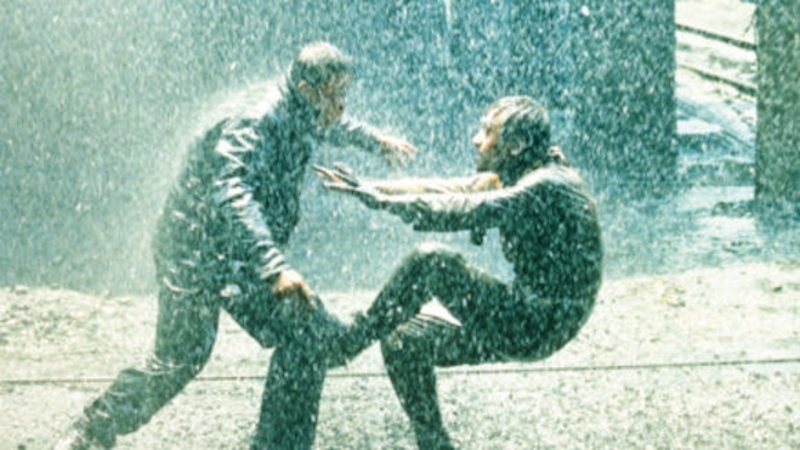Director – Lee Myung-se – 1999 – South Korea – Cert. 15 – 100m, 113m
***1/2
A cop determinedly pursues a gangland killer in a city where, since he committed the murder for which he is bing hunted, it always appears to be heavily raining – plays in Echoes In Time | Korean Films of the Golden Age and New Cinema which runs from Monday, October 28th until the end of 2024 at BFI Southbank
Effectively a four-hander – an impulsive detective, his partner on the force, a ruthless killer gangster and his long-suffering girlfriend. Like a slobbish, South Korean version of Chow Yun-fat without the charm, Park Joong-Hung is the Oriental action movie homage-named Inspector Woo, who before the titles have rolled has pursued a black-clad gang into an underground train for a machete fight, shot in stylish, bleached black and white for no apparent reason.
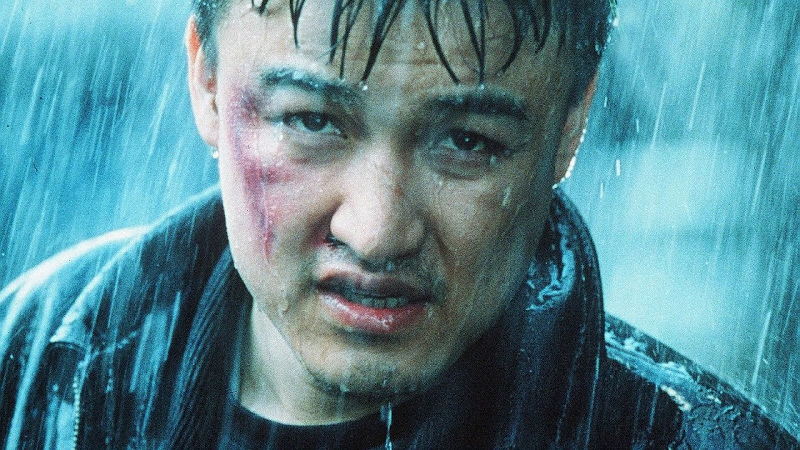
The ground is covered in Autumn leaves, recalling The Conformist (Bernardo Bertolucci, 1970). The downtown location of public stairway 40 Steps has a schoolgirl look up and see it begin to rain, the torrential downpour continuing for the two months and more of the remainder of the narrative. A man leaves his car to ascend the steps; halfway up, he approaches another man (Song Young-chang) and kills him, even as the victim stretches out his hand in a futile attempt to keep his murderer’s knife at bay.
Woo is in charge of the ensuing manhunt, which starts off like Taxi Driver (Martin Scorsese, 1976) prowling round night streets festooned with neon signs with the pace grinding increasingly to a halt as the days go by, the narrative punctuated by titles reading ‘Day 5’, ‘Day 6’, ‘Day 20’, ‘Day 40’, ‘Day 72’. You get the idea. He berates his partner Detective Kim (Jang Dong-gun from A Normal Family, Hur Jin-ho, 2023; Taegukgi – the Brotherhood of War, Kang Je-gyu, 2004; Friend, Kwak Kyung-taek, 2001) for not smoking or drinking. His reckless driving on the job arouses the ire of traffic cops, but he loses them before they can get anything on him. “I need life insurance to ride with a guy like you,” Kim tells Woo.
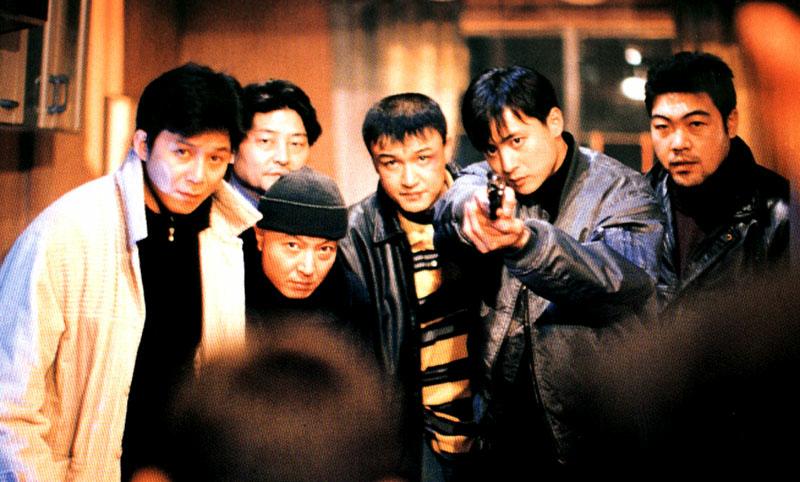
They follow Fishhead (Kwon Yong-un), a gangster recently released from prison, as he drives his new, luxury car to a nightclub – rendered in an inventive sequence of flashing, still photographic images set against pulsating, electronic dance music. After the obligatory chase and fight sequence, the two cops take him back to the station and use violence to get the name of the killer out of him – laundry proprietor Meathead (Park Sang-myun from The Foul King, Kim Jee-woon, 2000; Attack the Gas Station 2, Kim Sang-jin, 2010). Another fight scene follows – this one shot in black silhouettes against white – before he too is questioned at the station. “You’re good at hurting people,” the cops tell him. “You have to get hurt to know what it feels like.”
More fights and more questionings follow. Eventually, they work out who the killer is, but not his whereabouts. So they hassle his girlfriend Kim Ju-yeon (Choi Ji-woo), whose address they know. And through her, they have to track down the killer Chang Seong-min (Ahn Sung-ki, from North Korean Partisan in South Korea, Chung Ji-young, 1990; The Housemaid, Kim Ki-young, 1960). They make several attempts to do so. Eventually, Inspector Woo memorably fights him one-on-one in a railway goods yard in the pouring rain.
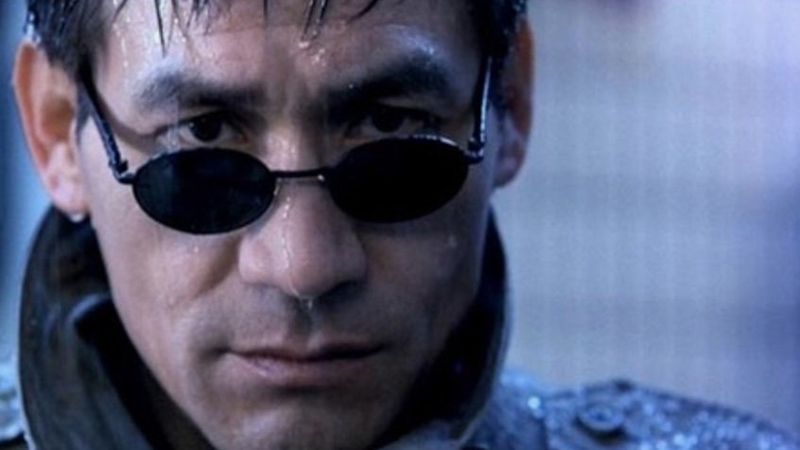
There appear to be two versions of the film – one at 113 mins (which played the year 2000 London Film Festival) and one at 100 mins (or 96 mins on video at 25 not 24 fps) which was released in the UK in 2001. The longer version is perhaps attempting to portray the tedium of police work, and on those terms, it succeeds in spades; However, if it’s attempting, as one suspects, to stretch tension to the point where it becomes almost unbearable, then the technique doesn’t work – it merely makes the viewer impatient and restless as s/he waits for something – anything – to happen. The shorter version is punchier.
In neither version is it clear how the cops work out who the murderer is, beyond a suspect naming him. Plot isn’t really the film’s strong point – it’s more like a series of longeurs and intermittent action set-pieces, with experimental style taking precedence over anything else in places (director Lee apparently came from the world of commercials). (The film is advertised in the BFI Southbank booklet as the Korean Film Archive’s 2018 4K restoration at 113 mins.)
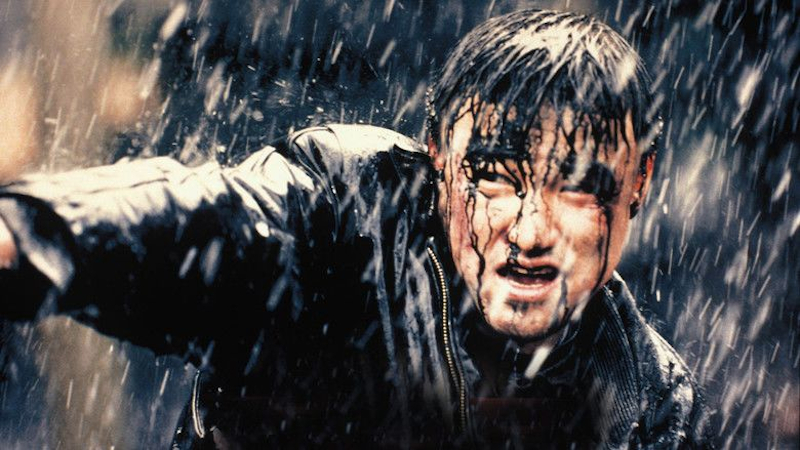
Not that this doesn’t have its moments – the suspect’s girlfriend who suddenly erases an unheard answerphone message before the cop questioning her can hear it, the riveting finale fight in the pouring rain – just that this promises so much more than it actually delivers. It also has the distinction of being the first Korean film to be released on a home cinema format (DVD) in the UK.
The cast also includes Lee Won-jong from Operation Chromite, John H. Lee, 2016; How to Use Guys with Secret Tips, Lee Wonsuk, 2013; The Foul King, Kim Jee-woon, 2000; Attack the Gas Station!, Kim Sang-jin, 1999) and Gi Ju-bong from Nobody’s Daughter Haewon, Hong Sang-soo, 2013; R-Point, 2004; Save The Green Planet, Jang Jun-Hwan, 2003; Sympathy for Mr. Vengeance, Park Chan-wook, 2002; Friend, Kwak Kyung-taek, 2001; Joint Security Area, Park Chan-wook, 2000).
Nowhere to Hide plays in Echoes in Time | Korean Films of the Golden Age and New Cinema which runs from Monday, October 28th until the end of 2024 at BFI Southbank.
Trailer:
Trailer (Echoes In Time | Korean Films of the Golden Age and New Cinema):
LKFF, The London Korean Film Festival 2024 ran from Friday, November 1st to Wednesday, November 13th at BFI Southbank and other venues.
Trailer (LKFF 2024):
